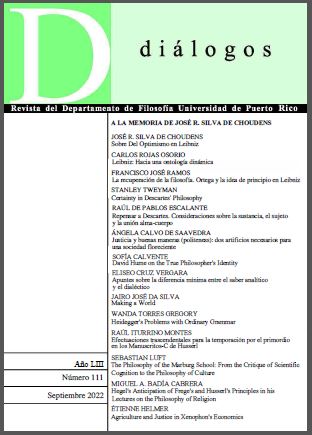Abstract
Since both analytical and dialectical knowledge are components of that Westernrationality which aspires to reclaim true knowledge of reality, it is necessary to identify the argument that may lead us to clarify the minimal distinction between both of them. In order to reach such a distinction, we base on Hegeland focus not on the ideological, but on the logical and phenomenological dimension. Even though Hegel culminates dialectical knowledge and employs it to pass judgment on the of insufficiency of analytical knowledge, his argument—although profound and convincing—might appear not compelling since it does not recognize that both types of knowledge aspire to comprehend the whole of reality. So, a closer and more complete argument to distinguish between both sorts of knowledge and their distinct modalities may be better grounded on the premises that take into account the relationship between contraries, the modality of totality, the concept of substance, and the import of the particular.
We will also defend the necessity of viewing analytical and dialectical knowledge as two constants throughout the history of Western philosophy. Much is lost when rationality is reduced to the analytical mode (Positivism), and also when their difference is obliterated by a subjectivist metaphysical stance that admits of only one kind of rationality (Heidegger). Both these attitudes toward rationality do not pay heed to something fundamental in the history of modern thought: Hegel’s contribution by transforming his dialectics into a mode of rationality suitable to knowthe reality of the spiritual.

This work is licensed under a Creative Commons Attribution-NonCommercial 4.0 International License.

